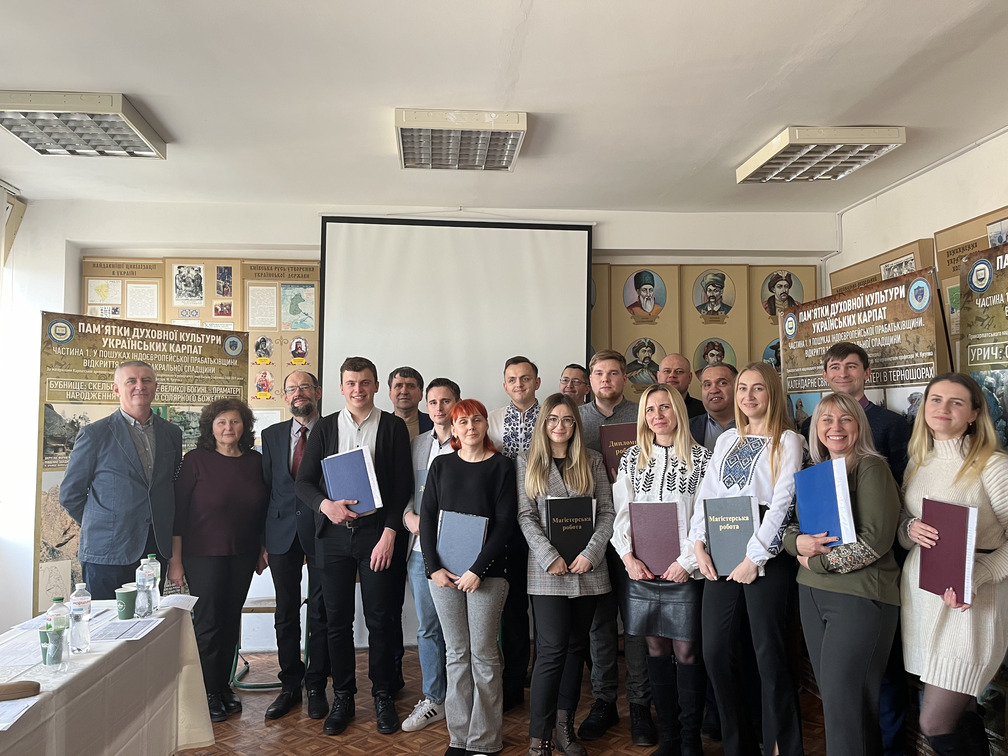On December 20–22, 2023, the successful defense of diploma theses for the second (master’s) level of higher education of second-year students of the specialty 014 “Secondary Education (History)” of the OR “Master” (part-time study) took place. The examination commission consisted of the chairman – Prof. Raykivsky I.Ya., commission members – Prof. Zhernokleev O.S. and Assoc. Prof. Yegreshiy O.I., commission secretary – Paliychuk I.I. In total, 31 candidates for the educational level “Master” defended their works. The leading specialist of the Institute of History, Ethnology and Archaeology of the Carpathians Bohdan Paska took part in the work of the EC, who acted as the scientific supervisor of 3 master’s students – Serhiy Atamanyuk, Ivanna Vynnyk and Yulia Melnyk.
The speeches of the graduate students were interesting, meaningful, and covered various aspects (political, cultural, economic, social, etc.) of both the history of Ukraine and world history. A separate section, and sometimes a number of sections, were devoted to the problem of using the materials of the diploma thesis for obtaining the second (master’s) level of higher education in general secondary education institutions and institutions of extracurricular education. Some of the works are devoted to topical issues of the methodology of teaching history at school. The commission drew attention to the high level of training and mastery of professional competencies of graduates of the specialty 014 “Secondary Education (History)” of the OR “Master” (correspondence form of study).
The master’s degree applicants presented their own methodological developments, adapted for use in their further pedagogical activities during classroom and extracurricular classes in history and civic education lessons, optional and group work in secondary education institutions and institutions of extracurricular education. Having prepared visualized presentations of the results of their research, the students skillfully behaved during the defense of their works, showed clarity, logic, consistency, and brevity of the presented material. At the same time, the competence and comprehensiveness of the young researchers’ answers to the questions of the members of the Examination Commission, as well as the etiquette and culture of communication of the participants, and active qualified participation in the discussion were observed.

